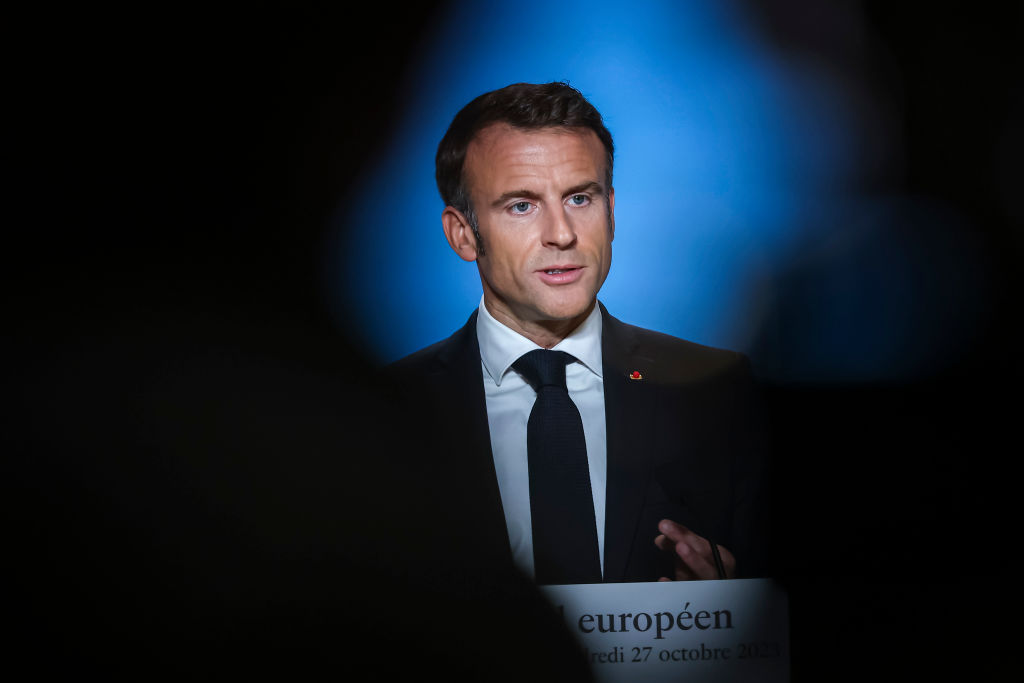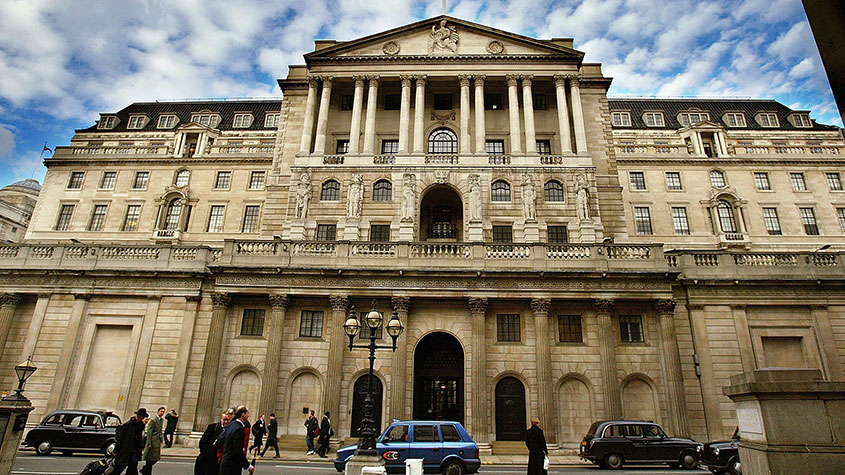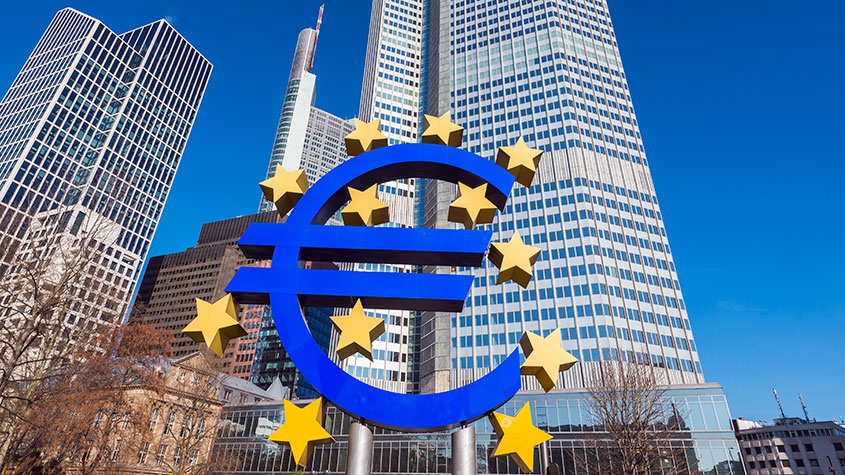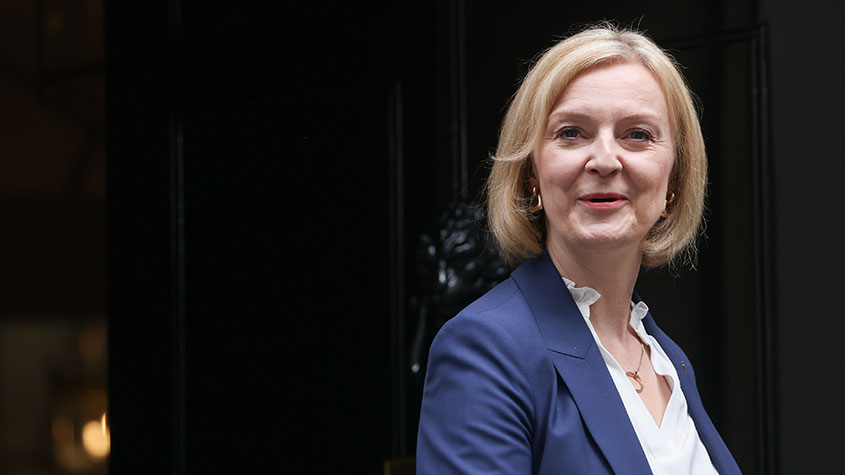Italy is testing Mario Draghi to step in and do “whatever it takes”
The Greek debt crisis was contained because the ECB vowed to do “whatever it takes” to backstop things. John Stepek asks if it’s prepared to do the same with Italy.

Get the latest financial news, insights and expert analysis from our award-winning MoneyWeek team, to help you understand what really matters when it comes to your finances.
You are now subscribed
Your newsletter sign-up was successful
Want to add more newsletters?

Twice daily
MoneyWeek
Get the latest financial news, insights and expert analysis from our award-winning MoneyWeek team, to help you understand what really matters when it comes to your finances.

Four times a week
Look After My Bills
Sign up to our free money-saving newsletter, filled with the latest news and expert advice to help you find the best tips and deals for managing your bills. Start saving today!
So far this year, the Italian stockmarket has been one of the best-performing developed stockmarkets in the world. That doesn't look like lasting.
Italian bond and equity markets both sold off yesterday as the odd couple of the Five Star Movement and the League party get closer to forming a government.
I didn't think this was going to kick off for a little while yet. Perhaps it won't and this is just a blip.
MoneyWeek
Subscribe to MoneyWeek today and get your first six magazine issues absolutely FREE

Sign up to Money Morning
Don't miss the latest investment and personal finances news, market analysis, plus money-saving tips with our free twice-daily newsletter
Don't miss the latest investment and personal finances news, market analysis, plus money-saving tips with our free twice-daily newsletter
But to be very clear, that all rather depends on just how keen the European Central Bank is to step in and work its magic all over again
The populists aren't going to standfor a telling off from France
Italy's coalition has chosen a candidate to serve as the new prime minister. They've gone for Giuseppe Conte, who as the FT puts it, is "a little-known 54-year-old professor" with "hardly any political experience".
This probably doesn't matter. I mean, Silvio Berlusconi was prime minister for years and no one batted an eyelid.
What matters more is the fact that the market has realised that the new team at the top have a rather more argumentative relationship with the European Union than perhaps investors had been hoping for.
Luigi Di Maio (boss of Five Star) and Matteo Salvini (head of the League) are taking over a country whose national debt is worth 132% of GDP. That's the worst in the eurozone, bar Greece.
The fear is that Italy is now going to abandon any semblance of trying to pay down its national debt. The populist coalition wants to cut taxes and spend more money. As a result, Italy's deficit (the amount by which government spending outstrips tax income) could be set to rise from just 1.3% just now to well over the 3% "ceiling" that the EU wants its member countries to stick to.
Credit rating agency Fitch said that this spending could lead to a downgrade for Italy'ssovereign debt.That has rattled those who hold Italian sovereign bonds.
On top of that, there's talk of issuing what is effectively a parallel currency the so-called "mini-BOT" (we discuss this in more detail in this week's MoneyWeek podcast).
The yield on the ten-year Italian bond (in other words, what it costs Italy to borrow money for ten years), has jumped significantly in recent weeks. It's now above 2.4%.
That might not sound like much I mean, it's still a lot cheaper for Italy to borrow than it is for the US (!) but the real indicator of stress is how much more Italian ten-year debt yields than German ten-year debt.
Germany is the "risk-free" rate for the eurozone. If you're going to lend money to any government in euros, then the one that investors reckon is the safest bet is Germany. So if you want to know just how worried investors are, you look at the gap (or "spread") between the rate that Germany can borrow at, and the rate that any other eurozone country can get.
Right now, the spread between German debt and Italian debt is at its highest level since last June. So it's opened up quite a bit.
European politics does not help this situation one bit. The new team won in Italy because the Italians increasingly feel that the EU is pushing them around.
Now, you can think of that what you will. But europhile or europhobe, anyone with an ounce of psychological nuance should know that the worst way to convince the Italians to stick to the rules is to threaten them.
So of course, the French finance minister Bruno Le Maire immediately tells the Italians that they need to stick to the rules. Salvini retorts on Twitter: "This is another unacceptable pitch invasion. I didn't ask for votes to continue on a path of poverty, precariousness and immigration: Italians first!"
That'll be a "no" then.
Here'sthebig problem the eurozone banks are still broke
I still don't think that this is going to erupt in a serious Greece-style manner (yet).
But that is utterly dependent on one thing: the European Central Bank (ECB) is going to need to step up and make clear that it's there to backstop things.
Let's rewind for a moment. Why are we here in the first place?
We're here in the first place because banking systems around the world went bust. When America's went bust, the US Federal Reserve stepped in, forced a few mergers, and printed money to tide the system over until the banks had repaired themselves. US banks are now healthy. When Britain's went bust, we did something similar, but more slowly. But British banks, by and large, are now healthy too.
In the eurozone however, it's a different story. Firstly, the European authorities treated the banking crisis as an Anglo-Saxon problem. They enjoyed swaggering around on the monetary moral high ground for about five minutes, before realising that their own banks had partaken of the most toxic assets more greedily than pretty much anyone else's.
The politics of having several countries but just one central bank then made it extremely difficult to copy the Anglo-Saxon solution to the problem.
The Germans asked: "Why should we bail out the Greeks?" And no one was really honest enough to say to them: "Because if you don't, then your entire banking sector will collapse too."
In the end, the ECB and Mario Draghi got their way. Quantitative easing (QE) kicked off in the eurozone, and the whole region was on its way to repeating the Anglo-Saxon experience. Banks get to lick their wounds, gradually write down their bad debts, and by the time QE is over, they are healed.
Problem is, we're not there yet. And while central banks in both Britain and the US erred very much on the side of caution before even thinking about removing "stimulus", the eurozone is not in the same situation. Plenty of politicians there are itching to get rid of QE as rapidly as they can.
But what many eurozone politicians don't quite seem to understand is this without the ECB explicitly standing behind them, spreads within the eurozone would explode. Because investors know that many of these countries are effectively still bankrupt.
That's what we're starting to see in Italy, which still has a problem banking sector. If this were Greece, then the ECB would be quite prepared to cut the country's banking system off altogether. QE bought everyone time to dump their Greek sovereign bonds, and that made excommunication possible and that in turn, was the implicit threat that eventually kept Greece in the eurozone.
Italy, of course, is much bigger than Greece, and cutting it out of the eurozone would almost certainly spell the end of the eurozone.
Don't invest in Italian stocks for now
That's a long way of saying that: if push comes to shove, Italy is holding the better hand of cards here.
The easy solution the eurozone fudge is for the ECB to make it clear that it will continue to support Italy, and for the EU to turn a bit of a blind eye to the overspend. In return, the populists pipe down a bit, and don't embarrass everyone by parading the fact that they've got one over on the EU.
But is that what'll happen?
Marcus Ashworth over on Bloomberg argues that "were [Italian] yields to breach 2.4%, investors would be absolutely justified in believing that the Draghi put' has died". Well, we're there now.
Maybe this argument will go much closer to the wire much more rapidly than I'd expected.
In any case, what does it mean for your investments? I own an Italian market tracker in my own portfolio. It has done well. And it's still not overly expensive.
But right now, there are better opportunities elsewhere, and it's also clear that until this particular political risk is dealt with, the path of least resistance is downwards. At some point, that may present a good buying opportunity, and I'll be looking out for it. But for now, I wouldn't be a buyer of Italian equities.
Merryn and I discussed all this on the MoneyWeek podcast yesterday, by the way, and we segued smoothly from that into the power of central banks, the reasons that the authorities are now sick of democracy, and then a nod to oil prices at the end check it out here.
Get the latest financial news, insights and expert analysis from our award-winning MoneyWeek team, to help you understand what really matters when it comes to your finances.

-
 Should you buy an active ETF?
Should you buy an active ETF?ETFs are often mischaracterised as passive products, but they can be a convenient way to add active management to your portfolio
-
 Power up your pension before 5 April – easy ways to save before the tax year end
Power up your pension before 5 April – easy ways to save before the tax year endWith the end of the tax year looming, pension savers currently have a window to review and maximise what’s going into their retirement funds – we look at how
-
 How have central banks evolved in the last century – and are they still fit for purpose?
How have central banks evolved in the last century – and are they still fit for purpose?The rise to power and dominance of the central banks has been a key theme in MoneyWeek in its 25 years. Has their rule been benign?
-
 Do we need central banks, or is it time to privatise money?
Do we need central banks, or is it time to privatise money?Analysis Free banking is one alternative to central banks, but would switching to a radical new system be worth the risk?
-
 The French economy's Macron bubble is bursting
The French economy's Macron bubble is burstingCheap debt and a luxury boom have flattered the French economy. That streak of luck is running out.
-
 The Bank of England can’t afford to hike interest rates again
The Bank of England can’t afford to hike interest rates againWith inflation falling, the cost of borrowing rising and the economy heading into an election year, the Bank of England can’t afford to increase interest rates again.
-
 Bank of England raises interest rate by 0.5%
Bank of England raises interest rate by 0.5%News The Bank of England has raised interest rates once again, this time by 0.5%. This takes the bank’s base rate to 3.5%, the highest it’s been since 2008.
-
 Eurozone inflation hits 10.7% in October
Eurozone inflation hits 10.7% in OctoberNews Inflation across the eurozone hit 10.7% in October. What does it mean for your money?
-
 A forgotten lesson on the dangers of energy price caps
A forgotten lesson on the dangers of energy price capsAnalysis Liz Truss’s proposed energy price cap is an ambitious gamble. But a similar programme in Spain ended up being a fiasco, say Max King and Tom Murley. Here, they explain why Truss’s plan could be doomed to failure.
-
 Central banks can’t solve our current economic problems
Central banks can’t solve our current economic problemsAnalysis Traditionally, as we hit recessionary times, central banks have lowered interest rates. But that’s not an option this time. If anyone can help dull the economic pain, it’s not the Bank of England, it’s the government. John Stepek explains why.